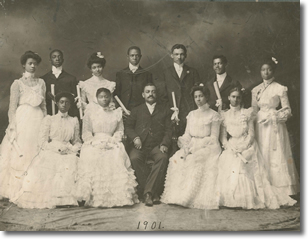Public Education

Following the Civil War, the Tennessee General Assembly passed an act for the reorganization, supervision, and maintenance of public schools. Solving the system's administrative and financial woes proved to be exceedingly difficult and the existence of thousands of newly freed black Tennesseans clamoring for educational opportunities represented an equally difficult and emotional challenge to postwar education supporters. The legislators reluctantly agreed to make provisions for the education of the state's black youth, but clearly specified that any publicly funded education would be segregated.
As the end of the nineteenth century approached, two public education systems functioned in the state: one black, one white, and both impoverished. State administrators willingly admitted that segregating the races into two separate systems was costly and had a detrimental effect on the education of African American and white students alike. Although southern education was impoverished generally, rural black children suffered from the most extreme deficits. The Great Depression saw the state’s schools suffer financial reverses. It was during this time that the National Association for the Advancement of Colored People (NAACP) began initiating court challenges against unequal education based on race, and their first successes came in the 1930s. By the mid 1950s the United State Supreme Court had outlawed segregation in public education, and Tennessee, along with the rest of the South, faced one of the most difficult challenges since the Civil War.
(adapted from “Elementary and Secondary Education,” by Cynthia Griggs Fleming in the Tennessee Encyclopedia of History and Culture.).
Scholarly Essay
Public Education in Tennessee by Mary S. Hoffschwelle
Related Content
See more images of African American schools in the Southern Places collection.